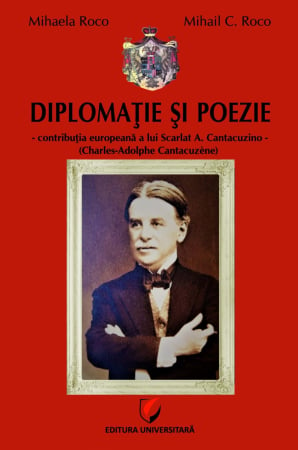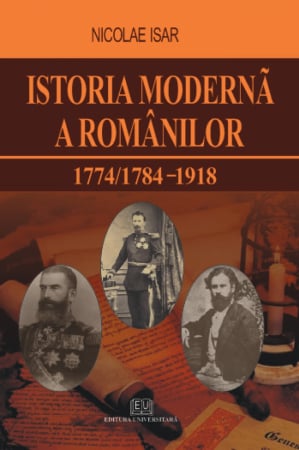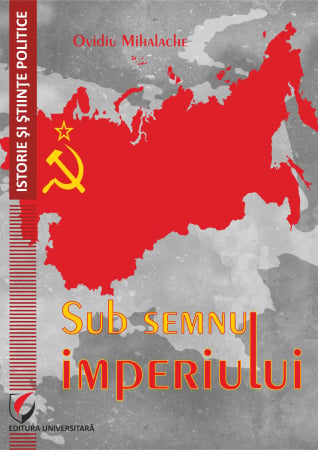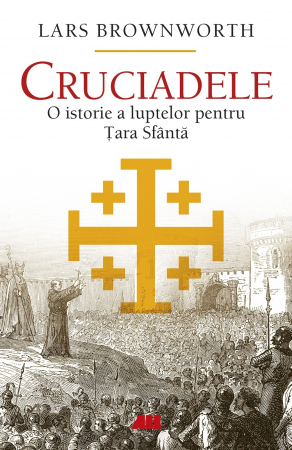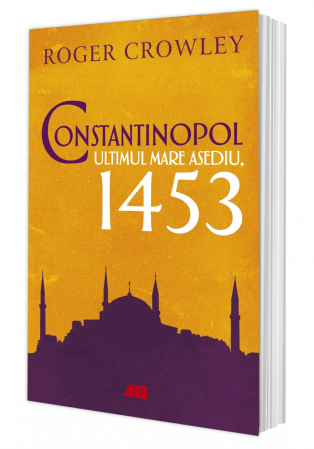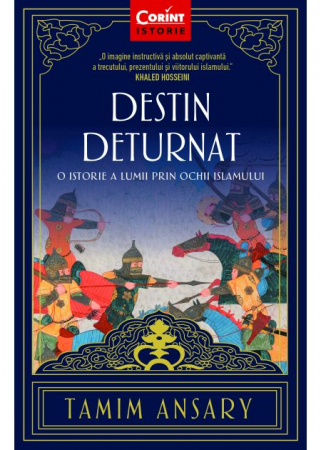ISBN: 978-606-28-0627-9
DOI: 10.5682/9786062806279
Publisher year: 2017
Edition: I
Pages: 250
Publisher: Editura Universitară
Author: Iuliana Ionescu
- Description
- Download (1)
- Authors
- Content
- More details
- Reviews (0)
Currently, both in civilian life and in the military world, whether it is current or exceptional situations, the concept of conflict is widely used, respectively of reconstruction / post-conflict rehabilitation. Almost every "speaker" has his own definition, his own approach to the concept and process of reconstruction.
This paper aims to analyze the post-conflict reconstruction process, including its key concepts such as conflict, post-conflict reconstruction, to define and frame them as precisely as possible in the context of recent politico-military developments and in addition to identify new solutions to increase operational efficiency. post-conflict reconstruction with a direct address to one of the major operations in which Romania is already participating.
-
The Post-Conflict Reconstruction Process. Case Study: Afghanistan
Download

IULIANA IONESCU
Graduate of the Faculty of History, University of Bucharest (class of 1997) and postgraduate studies at SNSPA (2002). He also attended specialization courses at the NATO PfP School in Oberamergau and the George C. Marshall Center for Strategic Studies in Germany, as well as at the US Naval School in Monterey. Currently, he is a senior civil servant in the Ministry of National Defense, where he has held a leading position since 2005. In 2007-2010, she was a NATO international official, his area of expertise being NATO partnerships, especially those with the Arab world.
a. The stage of research in the field / 8
b. Methods, objectives, hypotheses / 11
c. The structure of the paper / 13
CHAPTER I - APPROACHING THE POST-CONFLICT CONSTRUCTION OF THE STATE FROM THE PERSPECTIVE OF THE MAIN SCHOOLS IN THE THEORY OF INTERNATIONAL RELATIONS / 19
1.1. The perspective of realism and liberalism on the issue of post-conflict reconstruction / 19
1.2. The constructivist perspective of the post-conflict reconstruction process / 26
1.3. The concept of “post-conflict reconstruction” in the practice of international relations / 30
1.4. Models in the practice of post-conflict reconstruction / 37
1.4.1. State construction and sovereignty / 41
1.4.2. State construction and security / 48
1.4.3. State construction and welfare / 52
1.4.4. Political representation / 551.4.5. Intermediate assessments / 58
CHAPTER II - THE POST-CONFLICT RECONSTRUCTION PROCESS IN CONTEMPORARY SOCIETY. POLICIES AND STRATEGIES / 64
2.1. Introduction / 64
2.2. Components of the post-conflict reconstruction process / 73
2.3. External actors involved in post-conflict reconstruction / 78
2.3.1. UN / 78
2.3.2. International financial institutions / 81
2.3.2.1. World Bank (WB) / 82
2.3.3. Non - Governmental Organizations (NGOs) / 84
2.3.4. Regional alliances and ad-hoc coalitions / 85
2.4. The evaluation process. Measuring progress in the post-conflict reconstruction process / 90
2.5. Indicators of the progress of post-conflict reconstruction / 95
2.6. The relationship between strategy and politics in post-conflict reconstruction / 103
2.7. Conclusions resulting from previous reconstruction processes / 108
CHAPTER III - CASE STUDY: AFGHANISTAN / 119
3.1. Introduction / 120
3.2. The general framework. Brief presentation of Afghanistan / 122
3.3. The main external actors involved in the reconstruction process / 131
3.3.1. United Nations (UN) / 131
3.3.1.1. Deficient at the UN / 136 level
3.3.1.2. Interim conclusions / 142
3.4. NATO - International Security Assistance Force / 147
3.4.1. General presentation / 147
3.4.2. Provincial Reconstruction Teams (PRT) / 155
3.4.3. Deficient NATO / 161 level 3.4.4. Interim conclusions / 165
3.5 European Union (EU) / 166
3.5.1. Introduction / 166
3.5.2. Military contribution of the Member States / 169
3.5.3. The fight against narcotics / 171
3.5.4. This policy / 172
3.5.5. Trade relations / 173
3.5.6. Legal framework. Bilateral agreements / 173
3.6. Assessing progress in Afghanistan / 174
3.7. Afghanistan: the most likely scenario of short-medium term evolution / 181
CHAPTER IV - FINAL CONSIDERATIONS AND PROPOSALS FOR IMPROVING THE POST-CONFLICT RECONSTRUCTION PROCESS (FROM AFGHANISTAN) / 188
4.1. General appreciations / 188
4.2. Change of shape / 191
4.2.1. Conceptual basis / 191
4.2.1.1. The planning process / 195
4.2.1.2. Process management / 198
4.2.1.3. Financing / 199
4.3. Change of background (change of mentality) / 201
4.3.1. Conceptual framework / 201
4.3.2. Towards a new role for local Afghan authorities and external actors / 206
CHAPTER V - CONCLUSION / 210
LIST OF ANNEXES / 216
BIBLIOGRAPHY / 223
Unfortunately, human history is eminently confrontational. Concepts such as "conflict", "crisis" fall into the category of the most used in the universe of international relations. It is considered that conflicts were the engine of history. Thus, obviously, it means that proto-concepts of post-conflict reconstruction should have existed from time immemorial. Relevant, however, are the attempts that led to the drawing up of schools of thought, respectively of some state policies in this field. In fact, as we will further argue, "theorists" and "practitioners" think and propose solutions to the problems of high reconstruction, unfortunately independently and with a fairly limited margin of mutual influence compared to the existing potential and needs.
Currently, both in civilian life and in the military world, whether it is current or exceptional situations, the concept of conflict is widely used, respectively of reconstruction / post-conflict rehabilitation. Almost every "speaker" has his own definition, his own approach to the concept and process of reconstruction.
The participation of the Romanian military in operations outside the national territory has intensified both the use of concepts related to this field and the process of clarification, conceptual clarification (but also institutional approach) of participation, in the future, in such missions. Thus, the key concepts entered both the military and civilian specialized language, sometimes with the necessary distortions.
Along with the traditional approaches, we are currently witnessing, especially in the Anglo-Saxon world, a rethinking of the reconstruction process, not only conceptually but also from the perspective of practical approaches. Thus, at the level of the NATO community, the concept of "Effect Based Operations" and more recently Effect Based Approach to Operations was in vogue.
Not only are peacekeeping or peacekeeping operations viewed from this perspective, but the new philosophy will soon be extended to the post-conflict reconstruction phase. We are contemporaries of the emergence of a new system of thinking about war and military operations, respectively military-civilian, a system generated by the profound technological, informational and communication evolutions that have occurred in human society in recent decades.
The crises and armed conflicts that occurred in the post-Cold War period bear witness to all these developments. The conflicts in the ex-Yugoslav space, followed by those in Iraq and Afghanistan, offered the ground for the materialization and experimentation of new concepts, each of them with its own particularities.
Certainly the current armed crises and conflicts differ from those of previous periods not only by the high-performance military technology used, by the asymmetric nature of the confrontations, but especially by attempts to demilitarize post-conflict processes and operations.
As proposed in the philosophy of effects-based operations, the civilian component is important and must be involved from the very planning stage of a military operation. The military component has lost its monopoly on these operations and civilian analysts are sometimes the ones who make the most progress compared to the slower pace of change in the practical component (multinational organizations).
Unfortunately, as I will insist during the paper, there is still a gap between the two components (that of practitioners and that of theorists).
That is why this paper aims to analyze the post-conflict reconstruction process, including its key concepts such as conflict, post-conflict reconstruction, to define and frame them as precisely as possible in the context of recent politico-military developments and in addition to identify new solutions. increase the efficiency of post-conflict reconstruction operations with a direct address to one of the major operations in which Romania is already participating.

6359.png)
![The Post-Conflict Reconstruction Process. Case Study: Afghanistan [1] The Post-Conflict Reconstruction Process. Case Study: Afghanistan [1]](https://gomagcdn.ro/domains/editurauniversitara.ro/files/product/large/the-post-conflict-reconstruction-process-case-study-afghanistan-392-2261.jpg)



